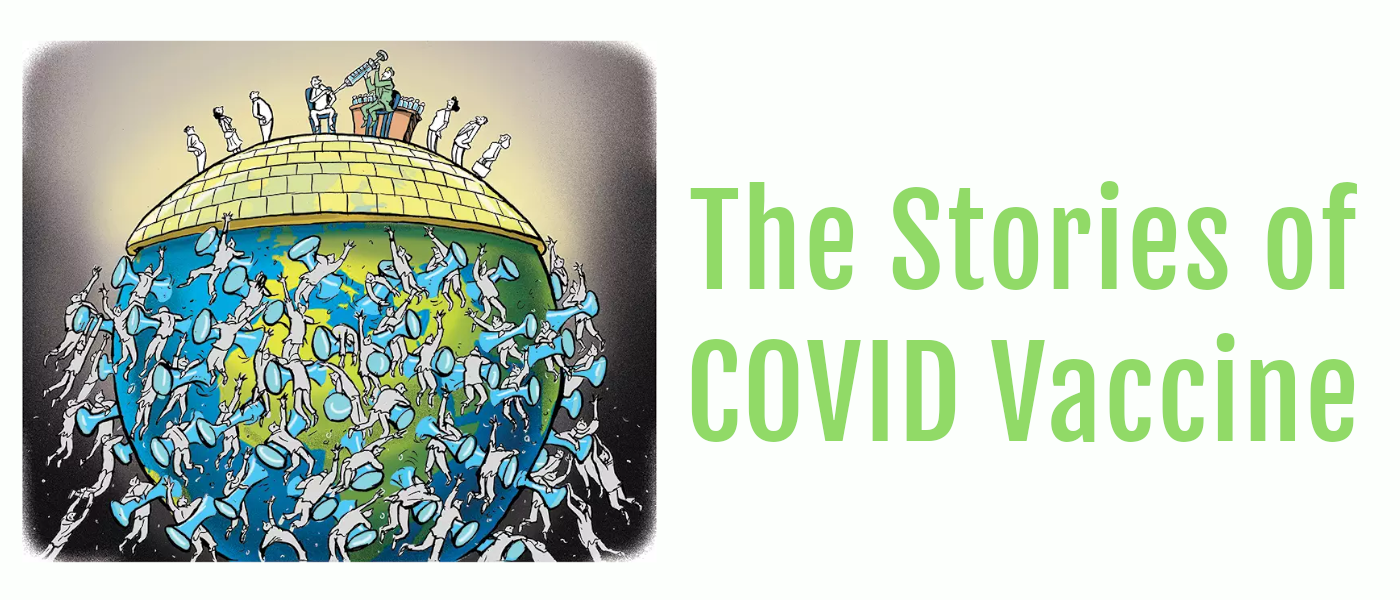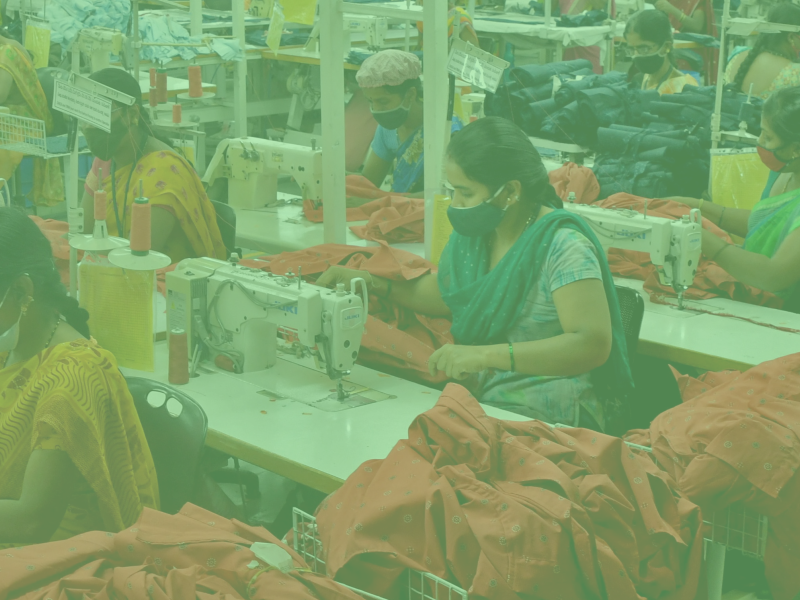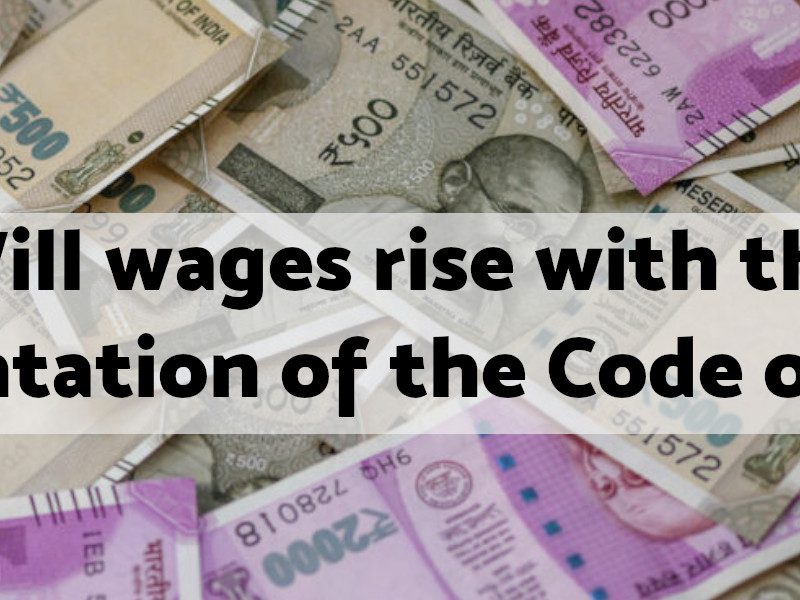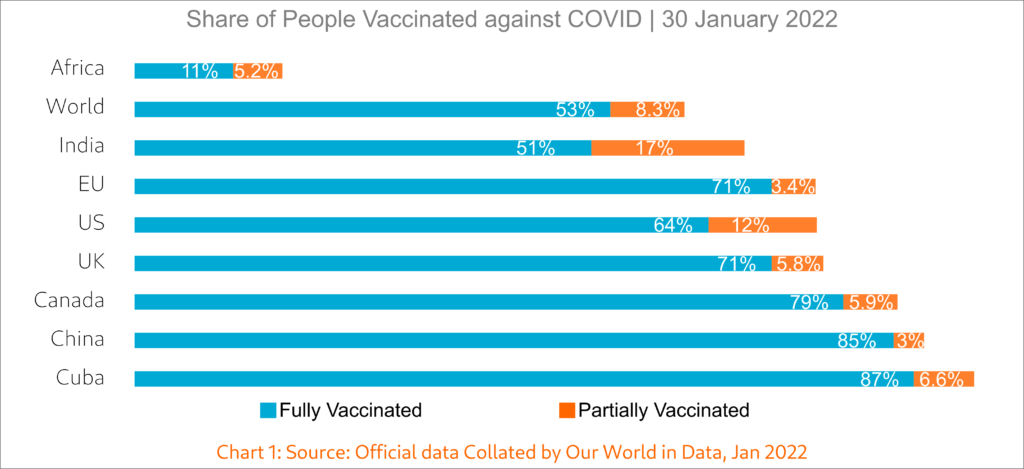
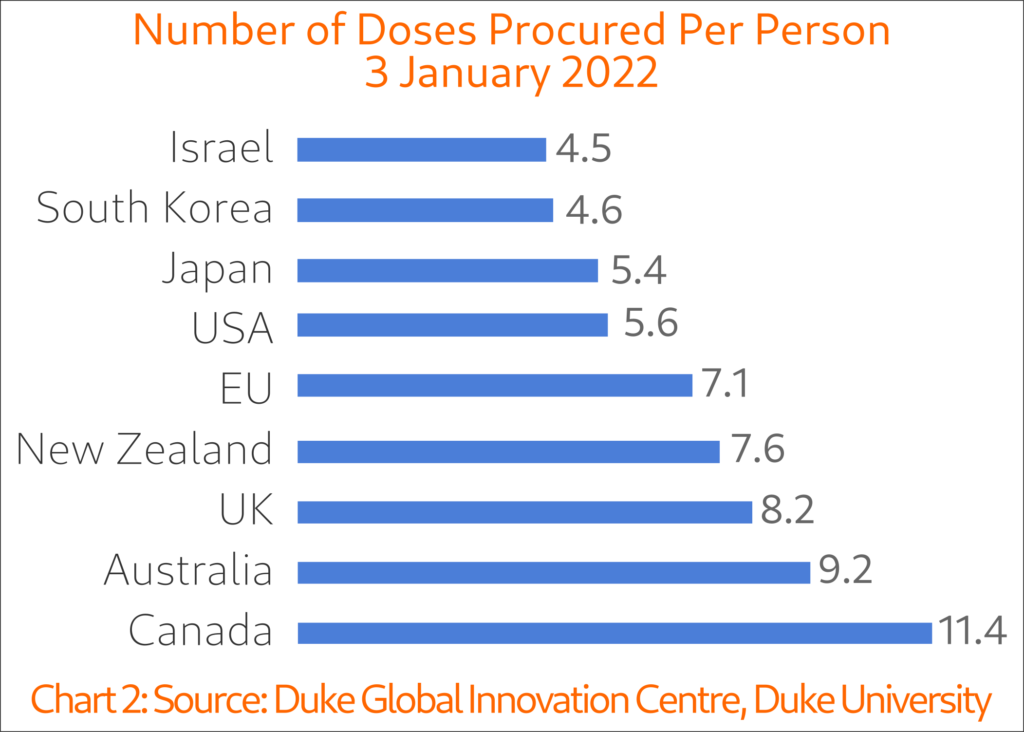
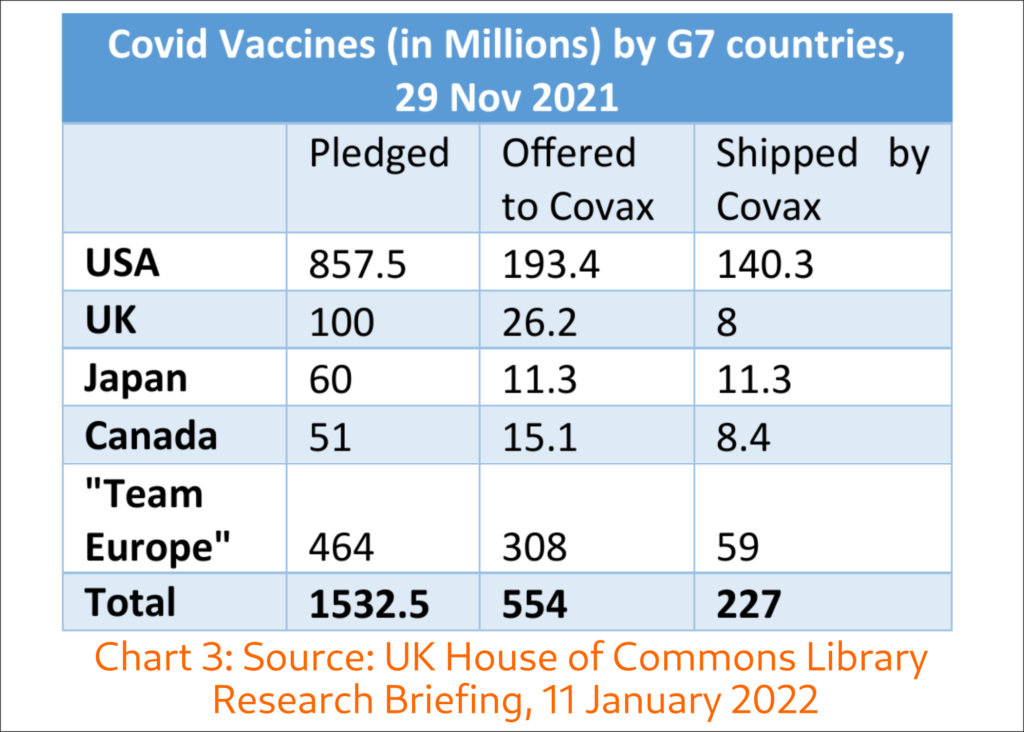
The World of Vaccines
On 8 December 2020, a 90-year-old woman in London became the first person in the world to receive a vaccine against COVID-19. While vaccine production over 2021 has been scaled up where it is close to being able to address the global demand, the situation remains precarious to constraints related to technology sharing, supply chains and hoarding by some countries.
India:
- India missed its vaccination target of vaccinating its entire adult population by December 2021. As of 30 December, 64% of India’s adult population was fully vaccinated. (Chart 1)
- India, the largest contract manufacturer and supplier of vaccines in the world, placed its first vaccine order only as late as in January 2021 and, even then, ordered too little.
- When the devastating second wave hit India full blow in April 2021, only 0.5% of Indians had been fully vaccinated.
- In response, the government imposed an export ban on covid vaccines which affected the vaccine supply committed by other countries and to be produced by Serum Institute of India (SII) for 91 low- and middle-income countries through COVAX. Covax is a global initiative led by Coalition for Epidemic Preparedness Innovations (CEPI), Gavi and WHO, with UNICEF as a key delivery partner to accelerate the development and manufacture of COVID-19 vaccines, and guarantee its fair and equitable access for every country.
- It is only in November 2021 that Government of India lifted the export ban on Covid vaccines. COVAX had relied on India for affordable dependable vaccines for low-income countries but with the indefinite export ban, COVAX had to seek other suppliers. Now with even the export ban lifted, India is no longer a dependable and the largest supplier to the COVAX initiative.
Africa:
- The WHO says Africa needs more than 900 million vaccine doses to fully vaccinate just 40% of its population while as of 30 December, the continent had received just over only 474 million doses in total – from the COVAXi initiative as well as the Africa Union vaccine acquisition scheme, and through bilateral deals. (BBC) This means with the currently available doses Africa can vaccinate only about 20% of its population. (Chart 1)
- Only 27% of health workers in Africa have been fully vaccinated against COVID-19 in Nov 2021 (WHO), leaving 7 out of every 10 health workers unvaccinated in the continent.
- The African Vaccine Acquisition Trust (AVAT), launched by the African Union to secure vaccines and attain a target immunization of 60 per cent of Africa’s population, disappointed by the failure of the countries of the global north to honour its promises of delivering funding for 700 million vaccines to Africa by the end of 2021 had to negotiate a direct deal with Johnson & Johnson for 400 million single-shot vaccines.
Even in this, AVAT had to fight EU resistance which had pre-ordered these vaccines being produced in Africa for the EU. It was only after South Africa threatened to ban export of all J&J vaccines produced in their Aspen facility to Europe that EU agreed to allow J&J to provide its future African-produced vaccines to Africa from October 2021.
Global North:
- In sharp contrast, by November 2020, the European Union, the USA, Canada, UK, Australia and Japan, accounting for only 13% of the population, had together pre-ordered about 10 billion vaccines, i.e., half of the entire production of vaccines for 2021 (including options, written into their contracts, to order extra doses, and negotiations that are underway but not concluded). Canada pre-ordered 9 doses of vaccine per person! By over-ordering, these countries have effectively locked out African and other poor countries from accessing the doses they urgently require. (Chart 2)
This hoarding of vaccines is being projected as a ‘good governance’ badge by the countries of the global north seeking political brownie points, whereas in reality it reflects nothing different from the rush that was seen on television by individuals who could afford hoarding toilet paper rolls in the US when the first lockdown was announced. It is a hoard and waste mentality governing individuals and rich countries that can afford to, thereby depriving poor countries from critical access.
- While the WHO has encouraged all vaccine donations to go through COVAX, several countries have donated both directly to chosen countries in the global south, using this as yet another tool to expand their spheres of control and arm twist countries needing the vaccine.
Vaccine pricing and Intellectual Property Rights
India, the largest contract manufacturer of the vaccine, was quoted at USD4, with USD8 for the private sector. South Africa was quoted a price of USD5.25 for the Astra-Zeneca vaccine while European Union members were paying only USD2.16. The rationale for this provided by the global north is that they put the money in the development of the vaccines and hence the discount. So, the logic is that the poor must pay the price for being poor.
Since 2020, health rights campaign organisation and the countries of the global south contract producing the vaccines for multinational Pharma companies have been demanding that the companies and governments of the global north that are home to these companies share their patented knowledge and technology with drug manufacturers of the global south. More than 100 nations, led by South Africa and India have been calling for a TRIPS (Trade-Related Aspects of Intellectual Property Rights) waiver on covid vaccines, rich nations, led by the UK and Germany, blocking the proposal, putting the interest of pharmaceutical companies over human lives.
The Companies that are producing these vaccines, including Moderna, Pfizer and Johnson & Johnson in the US and BioNTech in Germany, are citing quality concerns for not sharing this crucial knowledge. In reality, the companies are unwilling to give up their control over the vaccine patents and technology as this allows them to make colossal profits, even at the cost of human lives. According to data collected by the Peoples Vaccine Alliance, the companies behind the most successful COVID-19 vaccines — Pfizer, BioNTech and Moderna— are making combined profits of USD 65,000 every minute! The monopolies these companies hold have produced five new billionaires during the pandemic, with a combined net wealth of USD 35.1 billion. Pfizer and BioNTech have supplied less than 1% of their total vaccine supplies to low-income countries, while Moderna has supplied just 0.2 % to these countries. Despite receiving public funding of over USD8 billion, the three corporations have refused appeals to urgently transfer patents and process patents for production of vaccine with their own producers for decentralised production, including in the global south. Waiving patent rights would allow countries with manufacturing capacity to copy the formulae for the vaccines without enormous financial penalties but also a possibility of trade sanctions.
The US government in May 2021 supported the waiver on intellectual property surrounding COVID-19 vaccines that was proposed by India and South Africa but has not pushed the pharma companies to share the process patents with their manufacturers in the global south.
Cuba is leading the way by making its vaccine technology more freely available. Gamaleya, the maker of the Sputnik vaccine, in Russia has also promised to share its technology with manufacturers in Argentina.
In June 2021, the G7 countries (UK, US, France, Germany, Italy, Japan, Canada, and the EU) had pledged to donate 1 billion vaccines with the world over the next year of which, 870 million doses will be shared through COVAX, with the aim to deliver at least half by the end of 2021. The current status of this effort is shown in Chart 3.
Vaccine Donation or New Form of Control
Canada has donated through direct, bilateral arrangements with countries in Latin America and the Caribbean, including at-risk Venezuelan migrants. Only 53% of the vaccine donations made by the USA is through COVAX, the remaining are all through direct bilateral donations based on regional priorities and partner recipients. These include Mexico, Canada, and South Korea, Israeli occupied West Bank and Gaza, Ukraine, Kosovo, Haiti, Georgia, Egypt, Jordan, India, Iraq, and Yemen, as well as for United Nations frontline workers. The UK has donated bilaterally to Belize, Cambodia, Cayman Islands, Kenya, Malaysia, Nepal, Philippines, Thailand, Vietnam and the some of the Caribbean island countries.
The ‘Vaccine Maitri’ programme of the Government of India, has made direct grants of vaccines to the neighbouring countries of Bangladesh, Bhutan, Nepal, Sri Lanka, conspicuously denying Pakistan, while supplying also to Taliban-led Afghanistan and junta-led Myanmar. India also provided vaccine grants to other countries such as Kenya, Uganda, Rwanda, Ghana, Senegal, Mozambique, Botswana, Zimbabwe, Mauritius and Seychelles in Africa.
China, too, through its South-South Cooperation initiative has donated its vaccines to 46 African countries, 20 Latin American countries and to the ASEAN bloc and 5 central Asian countries (Kazakhstan, Kyrgyzstan, Tajikistan, Turkmenistan, and Uzbekistan).
All these direct donations, bypassing the COVAX, are an effort to expand and consolidate spheres of influence and hegemonic control over specific areas of the globe.
What can be done?
- Guaranteed international funding from countries of the global north, to support development of new global manufacturing capacity in countries of the global south
- Patent waiver and immediate technology transfer for covid vaccines and lower price of vaccines for countries in the global south
- Equitable distribution of vaccines across the globe with countries of the global north actively ceasing to hoard vaccines beyond their need.
- Widespread campaign for vaccination, even if in self-interest, to ensure brakes on the spread of the deadly virus.

